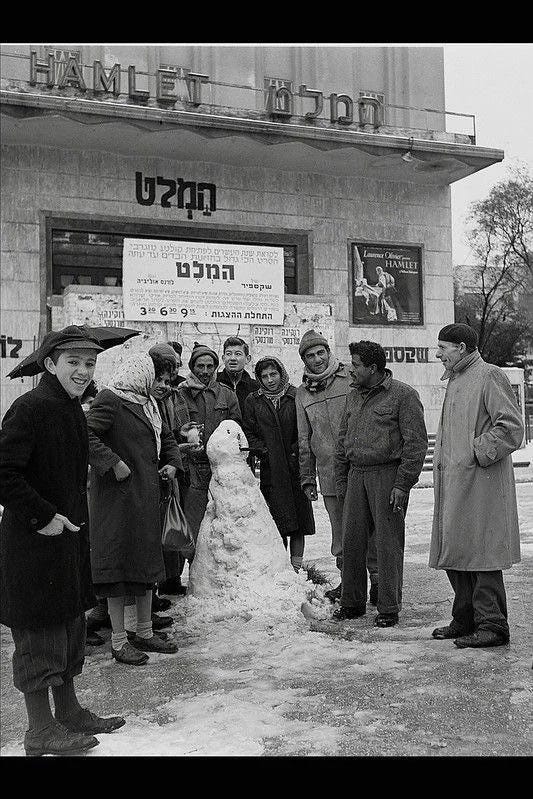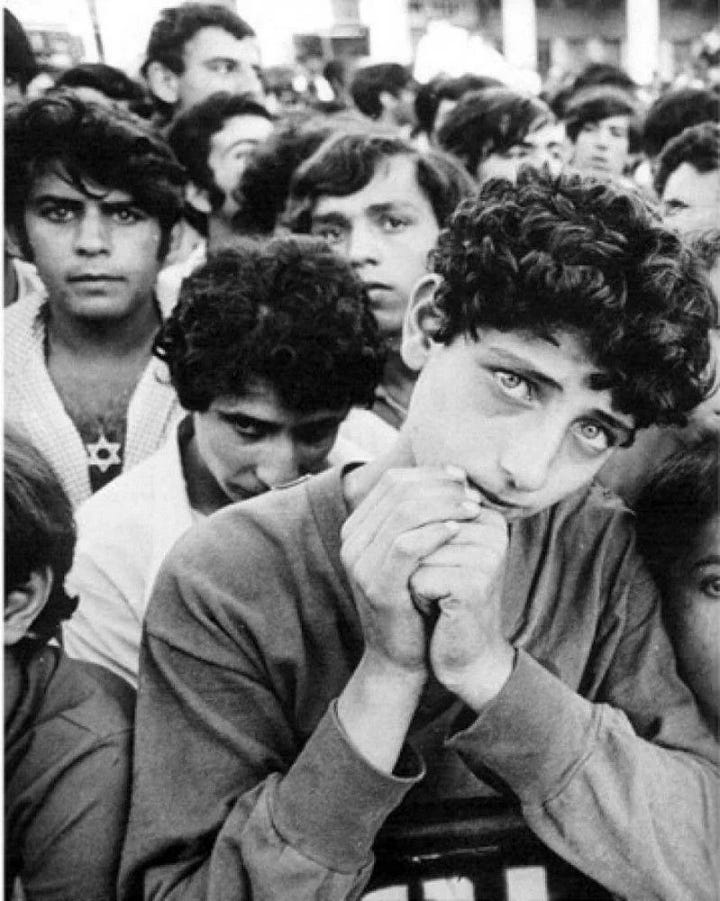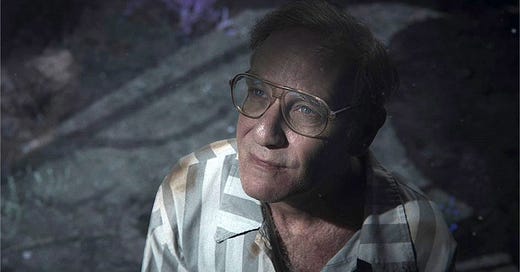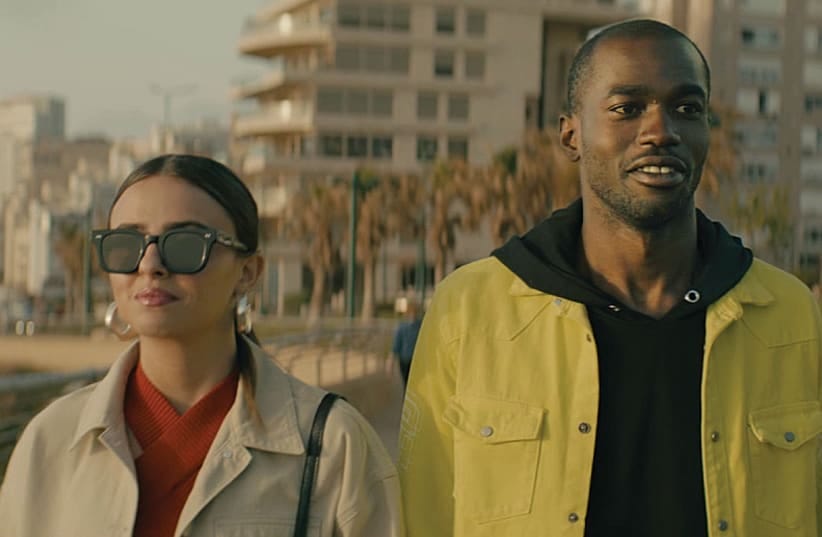"The Return from the Other Planet" Questions Society's Capacity to Witness Grief
Israel's version of Elie Wiesel, Yehiel De-Nur, pen name Ka-Tsetnik 135633, brought the Shoah (Holocaust) into public consciousness through his unflinching detailing of his horrific years in Auschwitz
Director Assaf Lapid’s 2023 documentary, The Return from the Other Planet [Trailer], arrives at a pivotal moment in history. Amid increasing polarization in politics, religion, and societal discourse, where binary "us vs. them" perspectives dominate, Lapid’s film offers a hopeful narrative about humanity’s ability to overcome immense hardship and be resilient under the most dire circumstances. It begs us to reconsider the “victim/perpetrator” ideology, instead opting for an empathetic lens in which a person’s life circumstances and the conditions in which they are born determine their actions.
The documentary follows the life of famed Holocaust writer Yehiel De-Nur, pen name Ka-Tsetnik 135633, who survived the camps only to find that much of the world didn’t know what had happened to the Jews during WW2.
Ka-Tsetnik (קאַצעטניק) is Yiddish for "Concentration Camper" (deriving from "ka tzet", the pronunciation of KZ, the abbreviation for Konzentrationslager); 135633 was De-Nur's concentration camp number.
Ka-Tzetnik, born Yehiel Feiner in Sosnowiec, Poland, in 1909, played a crucial role in providing the general public with a prisoner's perspective on life in a concentration camp, capturing the experiences of Holocaust survivors through his deeply personal and symbolic literary works. In essence, he gave the Shoah (Hebrew word for Holocaust) meaning, made sure it was not forgotten, and gave birth to a language and expression around grief and trauma that was non-existent.
Side Note: De-Nur wrote his first book detailing his Auschwitz experience, Salamandra, in over two and a half weeks, while in a British army hospital in Italy in 1945. In it, he refers to Auschwitz as “the other planet,” almost giving it a Dystopian or sci-fi feel. The words he uses to describe entering the camp and being there evoke an other worldy experience. As is mentioned in the film, prior to Ka-Tzetnik’s writings about Auschwitz, the term was meaningless. The narrative and language of the concentration camp did not exist.
The Language of Experimentation
It’s important to consider the time and place in which Ka-Tsetnik’s books were published. Ka-Tsetnik moved to Israel after WW2, at a time when the country was not yet formed, and when Jewish people from Eastern Europe who had survived the camps (and extermination) were seeking a place to call home, where they would not be persecuted and could heal and rebuild their lives. Israel is a country born out of the trauma of the Holocaust, with people who have known painful personal loss and experienced grief on an unprecedented scale.


Ka-Tsetnik’s prose and its vivid portrayal of the violence, gore, and brutality endured in concentration camps, including the sadistic reality of how victims were sent to crematoriums, is a deeply challenging subject to confront and depict, but it is less palatable for a country in mourning and still healing. Still, people were hungry for his truthful narratives, notably “Salamandra” and “House of Dolls,” which were very popular and a part of a paperback series.
Ka-Tsetnik Vs Yehiel De-Nur
The experts featured in the film largely agree that Yehiel De-Nur and his pen name, Ka-Tsetnik, represented two distinct identities—something that might today be classified as Dissociative Identity Disorder (DID) or Multiple Personality Disorder (MPD). However, I find this interpretation overly simplistic. To write his books, De-Nur had to immerse himself in the dark realities of Auschwitz. His practice of wearing his striped concentration camp uniform while writing and mentally returning to what he called "another planet" was a deliberate creative process, not evidence of losing touch with his identity.
The catalyst for Ka-Tsetknik’s downward spiral occurred during his testimony at the Eichmann Trial in June of 1961. Eichmann was one of the major organizers of the Holocaust, who was captured in Argentina, where he had absconded after the war to avoid being brought to trial. He eventually was captured and brought to stand trial in Israel. It was the first major televised international event in Israel, and part of the prosecution's case was the extensive use of survivor testimony. Over a hundred witnesses were called to both establish Eichmann's personal contributions to the Holocaust, but to paint a human picture of its scale.
At the trial, De Nur opted to give the testimony of his experience as Ka-Tsetknik, delivering an incredibly despondent and evocative description of his time in the concentration camp in which he repeatedly referred to Auschwitz as “the other planet.” Even going so far as to start with this proclamation. After speaking for a few minutes in the first-person prisoner account, he was interrupted by the judge, who grew impatient, and from there, De Nur collapsed.
The interpretation of his collapse is subject to large amounts of speculation in the film, with many of the talking heads pointing to this being the moment where both identities/personalities collided - that of De Nur, the reborn identity of a survivor once known as Yehiel Feiner, vs the Holocaust writer, Ka-Tsetknik. In this meeting of personalities, a psychological break occurs. In reality, I’d argue that De Nur/Ka-Tsetknik wasn’t particularly eager to give testimony and, for a quiet man, to be at the center of a large courtroom case in front of so many people and Eichmann, himself, any of these aspects might have led to his fainting. Plus, he hadn’t eaten for 24 hours prior. Sometimes the truth is much simpler than a bunch of very smart and interesting experts might make it otherwise seem. Or, to be cynical, he may have been performing. But either way, the MPD or DID theories seem far-fetched, though not without some merit.
One expert noted that Yehiel De-Nur's testimony was groundbreaking in its ability to articulate grief through a unique, representative language. However, this approach was swiftly dismissed by the judges, possibly due to the discomfort it evoked and their inability to fully comprehend its significance. This act of shutting down Ka-Tsetknik’s testimony in and of itself is a statement for what society will permit when it comes to allowances of grief expression.
The Code & Psychedelics
Post-trial, De Nur’s suffering and inability to shield himself and his loved ones from his declining mental health increased tenfold. Nina, his wife, had read about LSD treatments as they were proving to be an effective therapeutic option for Holocaust survivors in the 1960s, especially the approach helmed by a Dutch psychiatrist named Jan Bastiaans.
Side Note: The "Bastiaans method" was supposed to make patients relive their war and Holocaust past. Bastiaans claimed to be able to cure the most severe cases in this way. Bastiaans coined the term “concentration camp syndrome,” which basically is what we would generalize as “PTSD” today.
De Nur experienced multiple LSD trips during his stay in Leiden under Bastiaans’ supervision and was able, through his trips, to connect his former, pre-Holocaust life with this time at the camps. In particular, one scene from his childhood showed him at the Cheder (a primary school which teaches Judaism and Hebrew), talking to a rabbi, fused with a later life scene involving an SS officer at Auschwitz. In this interaction with the SS officer, De Nur mentioned that he saw the officer yawn, and an awareness settled over him - that this man could be him, if he were born German and at this time, and that similarly, that man could be him, given another set of circumstances. He was aware in that moment that he would never want to be a perpetrator and would always rather be the victim.
De Nur’s new state of consciousness was captured in his book “The Code,” which was less appealing to the mass public. The film is clearly validating that psychedelics are helpful as a means of therapy for trauma and can go a long way to helping someone live a more peaceful life. But it also makes the point that you’re either buying into “the other planet” ideology or De Nur’s later life transformation as laid out in “The Code.” In my opinion, the two can co-exist. It’s possible to find empathy as you mature and find space and distance from a traumatic event, and yet you can still capture that trauma by likening it to no other place you’d ever want to visit. I’m not sure the distinction makes a difference, or one that’s so profound as the film suggests.
The documentary's lasting impact lies in its exploration of a pivotal "what if" scenario: how might events have unfolded if De-Nur had not been interrupted during the Eichmann trial? Could his unique way of authentically expressing his experience have inspired other survivors to adopt a similar approach, potentially easing their grief in a healthier manner with longer-lasting effects? The image of De-Nur being silenced and carried out on a stretcher sends a message far more powerful than the debates surrounding his identity or his use of psychedelic therapy. This question stands out as the film's most compelling inquiry.
Related Recommendations - Israeli Film
One of my top picks for the 2023 Boston Israeli Film Festival I attended was An Artist Daughter, Oil on Canvas. [Read about it here.]
2025 Films:
"Hemda/Bliss" Observes One Couple's Struggle for Peace
Writer’s Note: When I transitioned from being an American Jewish tourist visiting Israel in my youth to becoming culturally immersed through my Israeli husband in my early thirties, I quickly realized how limited my understanding of Jewish identity had been. Growing up, I was primarily exposed to Ashkenazi Jewish culture, rooted in Central and Eastern E…
"Running on Sand" Details a Refugee's Plight in a "Ted Lasso" Way
During a key inflection point in the 2023 feature film from Israeli director Adar Shafran’s (The Wedding Plan) Running on Sand [Trailer], its young, soulful, optimistic protagonist, Omari (Chancela Mongoza), an Eritrean refugee living in Israel, is faced with an impossible dilemma.
Special thanks to the Boston Israeli Film Festival organizers for providing a screening of this film and others I will be reviewing. I have one left, and it’s a bit lighter in subject matter. Here’s a teaser:









Beautifully written, Beth. I was especially struck by your take on De-Nur’s courtroom collapse, not as a psychiatric break but as a moment society failed to hold space for grief.
It sounds like an interesting and important documentary to watch. Thank you for the review!